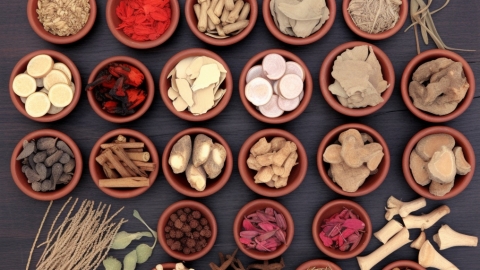Which Chinese herb is contraindicated with Hei Shun Pian?
Generally, Heishunpian (Aconiti Lateralis Radix Praeparata) is contraindicated with traditional Chinese medicines such as Veratrum (Lilu), Wu Ling Zhi, Ban Xia, Gua Lou, and Bei Mu. Detailed analysis is as follows:

1. Veratrum (Lilu)
Veratrum is cold in nature, while Heishunpian is strongly hot in nature. These two herbs possess opposing properties—one cold and the other hot—and their effects are entirely different. Concurrent use may result in antagonistic effects, thus affecting therapeutic outcomes.
2. Wu Ling Zhi
Heishunpian mainly functions to warm yang and dispel cold, whereas Wu Ling Zhi is a blood-moving herb that promotes blood circulation, alleviates blood stasis, and relieves pain. Combining Wu Ling Zhi with Heishunpian may reduce the efficacy of Heishunpian due to drug interactions.
3. Ban Xia
Ban Xia contains various alkaloids and irritating components. When taken together with Heishunpian, it may reduce the effectiveness of Aconiti Lateralis Radix Praeparata, thus failing to achieve the desired therapeutic effect.
4. Gua Lou
Gua Lou functions to clear heat, resolve phlegm, widen the chest, dissipate nodules, and relieve constipation. Concurrent administration with Heishunpian may weaken the therapeutic effect and could even lead to drug toxicity.
5. Bei Mu
Bei Mu functions to clear heat, resolve phlegm, disperse nodules, and reduce swelling. Its effects differ from those of Heishunpian, and combining the two may result in interactions that compromise therapeutic efficacy.
During the course of taking herbal medicines, it is essential to strictly follow TCM theory and the guidance of a licensed physician. Blindly combining herbs on one's own should be avoided to ensure safe and effective medication use. Additionally, pay attention to bodily reactions, and seek medical advice promptly if any discomfort occurs.






